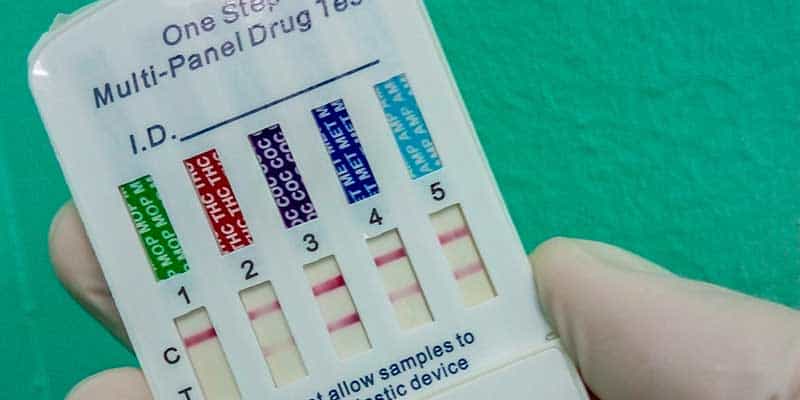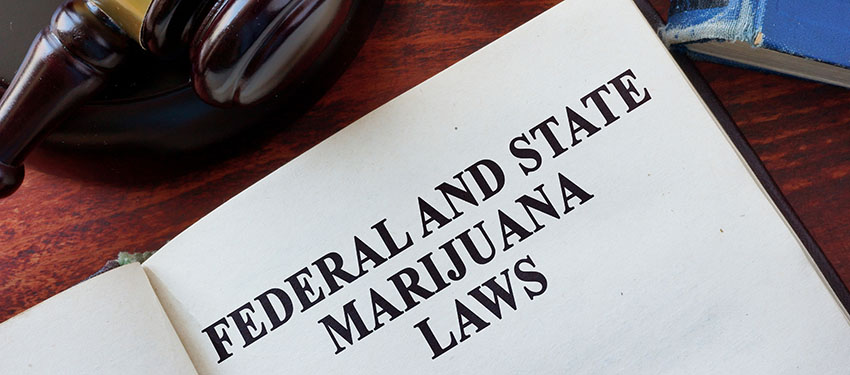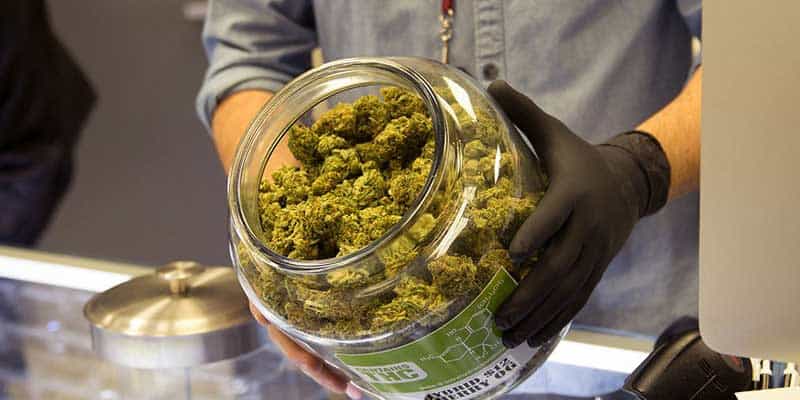While Arizonans have had more than a year to get used to legalized recreational marijuana laws in the state, many remain unaware of some of the legal changes that have accompanied its legalization. People need to understand the effect of recreational marijuana on various criminal laws and the differences between the laws surrounding recreational vs. medical marijuana.
Even though it is legal for adults 21 and up to possess and consume small amounts of marijuana, people can still be charged with marijuana offenses if they do not follow the laws.
An experienced criminal defense lawyer at the Shah Law Firm can help you understand these laws and what you should avoid to prevent yourself from being charged with a marijuana-related crime in 2022.
How Legalized Recreational Marijuana Laws have Changed in Arizona?
During the 2020 election, Arizona voters passed Proposition 207, which resulted in the legalization of recreational marijuana. This bill came 10 years after voters passed Proposition 203 in the Nov. 2010 election, which legalized medical marijuana. Like the earlier medical marijuana law, Proposition 207 caused numerous changes to how marijuana possession is treated in the state.
Before recreational marijuana was legalized, people caught with any amount of marijuana under two pounds could be charged with a class 6 felony under ARS 13-3405. However, Proposition 207 created a new chapter in Title 36 of the Arizona Revised Statutes called the Responsible Adult Use of Marijuana.
This chapter includes multiple statutes that govern the recreational use of marijuana, including where it can be used, who can use it, the amounts that people can legally possess, and others.
Under ARS 36-2852, for example, adults ages 21 and older can legally possess up to six plants, five grams of marijuana concentrate, or one ounce of cannabis.
However, if you possess more than the above-listed legal amounts of marijuana, you can still face charges as follows:
- More than one but less than 2.5 ounces as a first offense – Civil offense with a fine of $100 under ARS 36-2853
- More than one but less than 2.5 ounces as a second offense – A petty offense that could result in eight hours of mandatory drug education
- More than one but less than 2.5 ounces as a third offense – Class 1 misdemeanor carrying up to six months in jail
The Arizona marijuana laws are different if you are a certified medical marijuana user.
If you are caught with more than 2.5 ounces of marijuana but less than two pounds, you can still face Class 6 felony charges under ARS 13-3405. There are also restrictions on where you can smoke marijuana. Under these new laws, you are technically not allowed to smoke it in open public areas. While Arizonans can now legally grow marijuana plants, you must also follow the restrictions.
Marijuana plants must be grown in a locked, enclosed area out of public sight. If you live with another adult over age 21, you and your housemate can grow a maximum of 12 marijuana plants in the locked, enclosed space.
Is Marijuana Paraphernalia Also Legalized?
Under ARS 13-3415, people could previously be charged with Class 6 felony offenses for possessing drug paraphernalia for marijuana use. Before the recreational marijuana law was passed and enacted, you could be charged with a felony if you were caught with any type of marijuana paraphernalia, including pipes, bongs, baggies, growing equipment, and others if you did not have a medical marijuana card.
While it is now legal to possess paraphernalia allowing you to use marijuana, it is still illegal to possess other types of drug paraphernalia for other illegal drugs.
Marijuana Distribution
The recreational marijuana law allows you to give one ounce or less of marijuana, five grams or less of marijuana concentrate, or six or fewer plants to another adult over the age of 21. However, you cannot receive any type of compensation for doing so.
If you are remunerated for marijuana you supply to someone else; you could be charged with possessing marijuana with the intent to sell it. Depending on the weight, you could face anywhere from a Class 4 to a Class 2 felony if you are convicted of possessing marijuana with the intent to sell it under ARS 13-3405.

Where Can You Use Marijuana Legally?
Under ARS 36-2851, you are restricted on where you can legally use marijuana. You cannot smoke it in public or in open spaces, including parks, restaurants, bars, and others. You are also not allowed to vape marijuana in public. If you are caught smoking or vaping marijuana in public, you can face a petty offense carrying a fine but no jail.
The recreational marijuana law uses the definition of public place found in ARS 36-601.01. This was the law that made it illegal to smoke tobacco in public places. Under this definition, you cannot smoke marijuana in nearly any business, walkway, or park. You also cannot smoke marijuana in hotels or motels.
You cannot smoke marijuana anywhere and you also cannot smoke tobacco. However, people who smoke tobacco are allowed to smoke it in more places than people who smoke marijuana.
It is not a crime for you to be in public while under the influence of marijuana.
However, you cannot smoke it in your vehicle or drive while you are under the influence of marijuana. If you do, you can be charged with a drugged driving charge. It is also illegal to consume marijuana in a running car or boat. Since DUI charges carry stiff penalties and are aggressively prosecuted, you should never consume marijuana while you are in actual physical control of a vehicle, even if you are not driving it.

Employment and Recreational Marijuana Use
While it is legal for you to use recreational marijuana as long as you are at least age 21, the marijuana laws do not prevent employers from setting policies to require drug-free workplaces. This means that you can be fired by your employer for being a recreational marijuana user.
Similarly, while it might not be a crime for you to possess a small amount of marijuana, you could lose your job if you possess it at work or arrive for your shift while high under the influence.
What Constitutes Reasonable Suspicion and Probable Cause?
Police officers are not allowed to detain people to investigate a possible crime unless they have a reasonable suspicion that the people they detain have committed a criminal offense or another legal violation. Officers must similarly have probable cause before they can search people or their vehicles.
Before recreational marijuana was legalized, police officers could stop people and conduct searches based on smelling the scent of marijuana. This frequently resulted in lengthy stops and numerous searches, and it was difficult to challenge an officer’s claim that he or she smelled marijuana. The standard is now more complex, however.
Since it is now legal for adults to possess small amounts of marijuana, the smell of marijuana by itself does not amount to reasonable suspicion.
But, there are a few exceptions. For example, if you are stopped by the police on suspicion that you are driving under the influence, an officer who smells marijuana coming from your person or vehicle might be able to justify a search of your vehicle and person based on the odor.
An officer might also use it to detain you longer at the scene while trying to find other reasons amounting to probable cause to conduct a search. In these types of situations, you should speak with an attorney at the Shah Law Firm to determine whether the exception was properly used by the officer.
The scent of marijuana can also be considered to be a relevant factor when police officers determine whether they might have reasonable suspicion that they have committed a crime. Officers are allowed to consider their observations even when some might be individually innocent, but when taken together, amount to reasonable suspicion under the totality of the circumstances.

Arizona Marijuana Drug Charge Expungements and Set-Asides
Under ARS 36-2862, many Arizonans with certain types of convictions for marijuana offenses can petition the courts for a marijuana expungement. An expungement removes a conviction from your record, and it will not appear when employers and others conduct background checks.
Previously, the only available remedy for people with old marijuana possession convictions was to ask for a set-aside. With a set-aside, the record will still appear, but there will be a notation that it was set aside.
You are eligible to petition the court for expungement for any of the following convictions:
- Use, possession, or transportation of up to 2.5 ounces of marijuana or 12.5 ounces of marijuana concentrate
- Cultivation or possession of up to six plants in your home
- Use, transportation, or possession of marijuana paraphernalia
If you have a qualifying marijuana conviction on your criminal record, the ability to have it expunged can provide you with a fresh start. Prospective employers and landlords will not be able to see your conviction if you receive an expungement.
Differences Between Recreational vs. Medical Marijuana
It is important to highlight several differences between the use of medical marijuana and the use of recreational marijuana in Arizona.
The rules for the legal use of medical marijuana are much more relaxed than they are for recreational marijuana.
The Arizona Medical Marijuana Act is codified at ARS 36-2801 et. seq.
You can get a medical marijuana card if you have one of the following qualifying conditions:
- Agitation caused by Alzheimer’s disease
- Amyotrophic Lateral Sclerosis
- Chronic conditions that cause wasting syndrome or cachexia
- Chronic pain
- Cancer
- Crohn’s disease
- AIDS/HIV
- Glaucoma
- Severe nausea
- Post-traumatic stress disorder
- Hepatitis C
- Severe or chronic muscle spasms
- Seizure disorder
While only adults can use recreational marijuana, even minors can get medical marijuana cards as long as they have qualifying conditions. Medical marijuana users must also get a recommendation from a licensed physician who is authorized to recommend medical marijuana and pay a number of fees to the state.
Medical marijuana cards must be renewed every two years.
Medical marijuana cardholders can also lawfully possess, transport, or purchase more marijuana than recreational users. If you have a medical marijuana card, you can lawfully possess up to 2.5 ounces of marijuana or up to 12.5 grams of marijuana concentrate without facing any type of charge. You can also cultivate up to 12 plants, but you must do so in an enclosed, locked space.
Simply having a medical marijuana card does not mean that you can drive a vehicle while you are under the influence of cannabis.
If you are a registered medical marijuana patient, an exception to the state’s DUI law applies when you are not impaired but have a concentration of THC or its metabolites in your blood.
In many marijuana DUI cases, police will charge people with DUIs under two subsections of ARS 28-1381. Under 28-1381(A)(1), you can be charged with a marijuana DUI if you are under the influence of marijuana at the time you drive, operate, or are in actual physical control of a vehicle.
Under ARS 28-1381(A)(3), you can also be charged with a DUI if you have the presence of any amount of drugs listed in ARS 13-3401, which includes marijuana.
However, the Arizona Supreme Court issued a decision in Dobson v. McClennen, 238 Ariz. 389 (2015, which clarified this for medical marijuana users. In this case, the Arizona Supreme Court held that registered medical marijuana cardholders could not defend against a marijuana DUI impairment charge under ARS 28-1381(A)(1) based on the fact that they are legally authorized to use medical marijuana.
Users can assert the fact that they are registered medical marijuana users as an affirmative defense against a DUI charge under ARS 28-1381(A)(3). This means that medical marijuana users cannot be convicted of DUIs solely based on the presence of marijuana or its metabolites in their system as long as they were not impaired by it at the time they drove, operated, or were in actual physical control of their vehicles.

How the Criminal Justice System Changed in Arizona With the Marijuana Laws?
Legal recreational and medical marijuana laws have had a significant impact on the criminal justice system in Arizona. Before weed was legalized, even a small amount of marijuana could result in a felony conviction.
People who have felony offenses on their records face many problems, including trouble finding employment, obtaining credit, or being approved for housing.
The ability to legally use marijuana and to obtain an expungement for old marijuana convictions has led to decreased stigma for marijuana users and a fresh start for thousands of Arizonans.
Speak With an Experienced Marijuana Charge Defense Attorney

If you are facing weed-related charges, you should speak with attorney Arja Shah at the Shah Law Firm as soon as possible.
Call us today for a consultation at (602) 560-7408.
